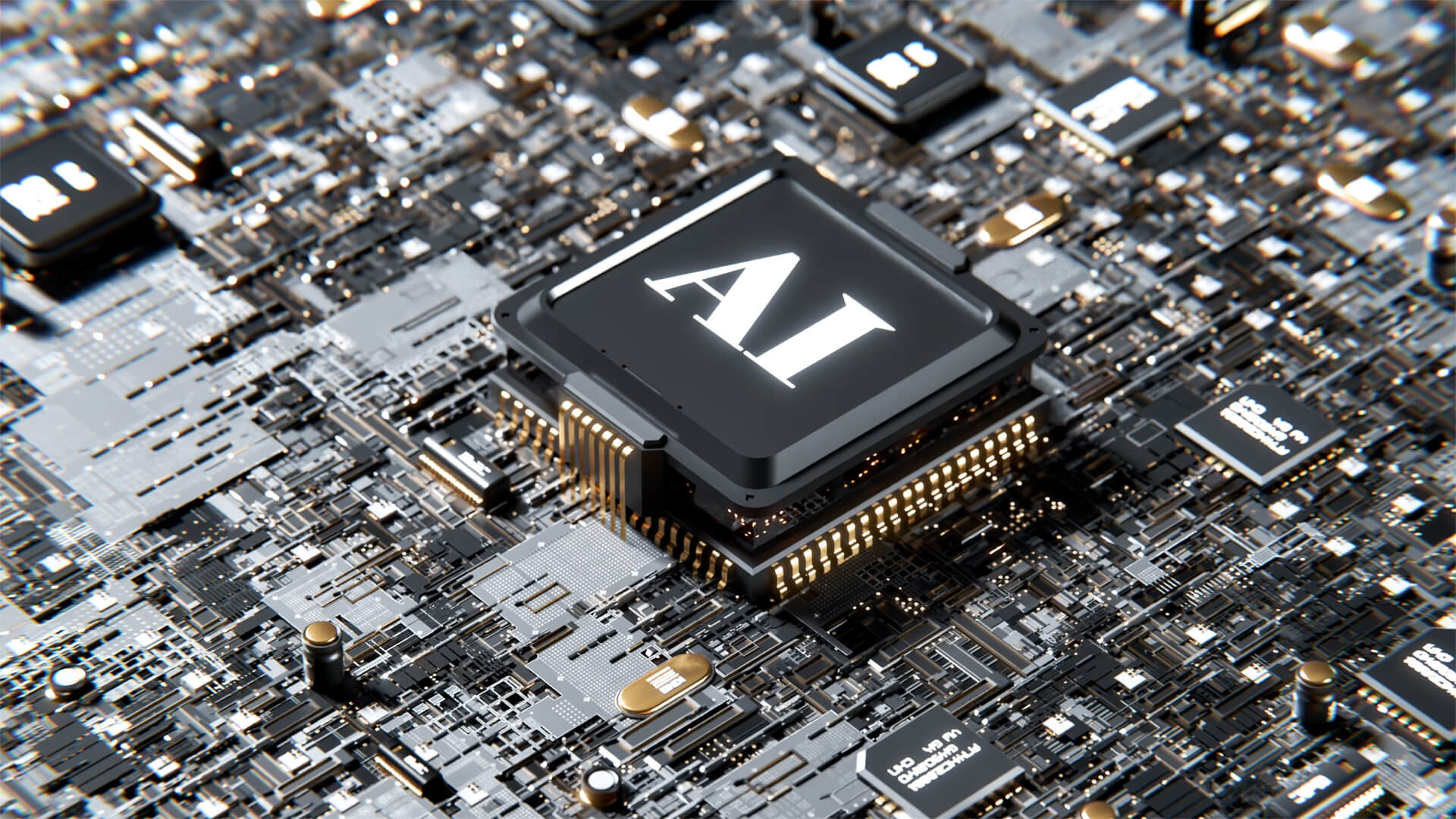*This video was recorded in mid-July, prior to Peter departing on his backpacking trip.
As the baby boomers age into retirement and Gen Z fails to satisfy the gaping hole left in the labor market, will artificial intelligence be able to help mitigate some of the fallout?
AI has solidified its spot in the labor mix of the future, but “when?” and “how?” are the looming questions. Producing AI-capable chips remains highly complex and reliant upon a web of critical international suppliers. Until that supply chain is slimmed down and fail-safes are added, production disruptions will continue to be a huge factor in limiting the AI buildout.
On the other front, the nature of AI lends itself to better take on white-collar work. Most people picture AI taking care of the manual and mundane tasks no one wants, but it is better suited to a lifestyle “in the office”. So, the places we need the help most, like blue-collar jobs, won’t get much help on the AI front.
AI’s transformative effect is coming, but it won’t occur as quickly as many expect. Think in the 40s rather than the 20s. When it does arrive, the productivity in white-collar jobs will skyrocket, but fields that really need some extra hands (or hand effectors or whatever you call robots’ metaphorical gripping mechanisms) will still be scrambling to navigate the labor shortages.
Here at Zeihan On Geopolitics we select a single charity to sponsor. We have two criteria:
First, we look across the world and use our skill sets to identify where the needs are most acute. Second, we look for an institution with preexisting networks for both materials gathering and aid distribution. That way we know every cent of our donation is not simply going directly to where help is needed most, but our donations serve as a force multiplier for a system already in existence. Then we give what we can.
Today, our chosen charity is a group called Medshare, which provides emergency medical services to communities in need, with a very heavy emphasis on locations facing acute crises. Medshare operates right in the thick of it. Until future notice, every cent we earn from every book we sell in every format through every retailer is going to Medshare’s Ukraine fund.
And then there’s you.
Our newsletters and videologues are not only free, they will always be free. We also will never share your contact information with anyone. All we ask is that if you find one of our releases in any way useful, that you make a donation to Medshare. Over one third of Ukraine’s pre-war population has either been forced from their homes, kidnapped and shipped to Russia, or is trying to survive in occupied lands. This is our way to help who we can. Please, join us.
Transcript
Hey, everybody. Peter Zeihan here, coming to you from the Lake of the Ozarks in Missouri. Today, I’m taking a question from the Ask Peter forum about artificial intelligence. The question is, with labor shortages looming due to the retirement of the baby boomers, the largest workforce we’ve ever had, and the new generation, Generation Z (the Zoomers), being the smallest generation ever, can increases in productivity, such as through artificial intelligence, help round out and fix these issues? The answer is… maybe.
There are a couple of problems here. First, it’s very unlikely that we can sustain the level of production of artificial intelligence-capable chips necessary to fundamentally transform the American or global workforce. The issue is that thousands of companies are involved in manufacturing these chips. Yes, 90% of these chips come from a single town in Taiwan, which poses a security risk, but the problem is even bigger. Most companies in the supply chain for these fabrication facilities only make one product for one end user, which is TSMC in Taiwan. If something happens to a few of these companies, we could lose the ability to make these chips at all. So the idea of having massive server farms crunching data for artificial intelligence is probably not going to happen this decade and might not happen next decade. We’ll need to build a new ecosystem for that, and it takes time.
The second problem is the nature of artificial intelligence itself. There’s a saying that’s becoming popular: “We want artificial intelligence to do the dishes so that we can spend more time writing, not to do our writing so that all that’s left is the dishes.” The issue here is that artificial intelligence primarily helps with white-collar work, like brain work, correlation tasks, paralegals, researchers, writers, and editors. These are the sorts of jobs that AI is most likely to slim down. But that’s not where the labor shortage is in the United States. Over the last 50 years, baby boomers have focused on getting their kids into college and into high-value-added white-collar jobs.
However, in a world where China is fading quickly and the United States is experiencing an industrial renaissance, we need electricians, welders, linemen—people to physically move and make things. These are blue-collar jobs, not white-collar, and artificial intelligence can’t help nearly as much with them.
So while artificial intelligence will be a part of the future, I don’t think it’s going to happen as quickly as some expect. When it does, it’s going to reshape industries like finance, making it more efficient to move money around, which could reduce the need for large numbers of coders in places like New York. It’s going to increase the productivity of white-collar workers, so we might not need as many people handling tasks like processing insurance claims in doctors’ offices. AI might also help crack the genome to boost agricultural productivity and will certainly play a role in defense and cryptography to enhance security.
But it’s unlikely to have a huge impact on manufacturing. For that to happen, we don’t just need AI; we need robotics—mobile robotics—and AI isn’t quite there yet. It’s progressing, but we’re looking at the 2040s, not the 2020s, for significant developments in that area. So can AI help? Sure, at the margins. But you’re probably still going to have to do your own dishes.








